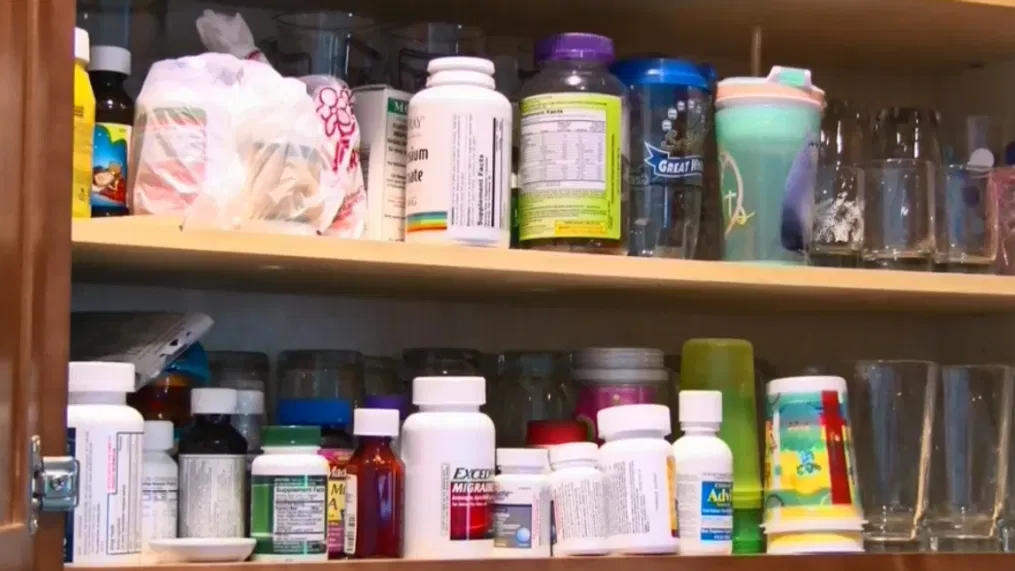The Sharjah Municipality has issued a public health advisory urging residents to store medicines safely at home. The warning comes as part of their seasonal awareness campaign and is aimed at reducing the health risks that come with improper medicine storage, especially during the scorching summer months in the UAE.
Medicines that are not stored properly can lose their effectiveness, become dangerous, or even lead to poisoning. The advisory is especially relevant for households with children, elderly family members, or people managing chronic illnesses.
Why You Must Store Medicines Safely
Improper storage of medicine is a silent danger in many homes. While people often focus on taking the right dosage, they forget that where and how medicine is kept is just as important.

According to Sharjah Municipality officials, high temperatures, humidity, and direct sunlight can alter a medicine’s chemical structure, making it less effective or even harmful. Keeping pills or syrups in the wrong place, like a kitchen counter or a hot car, can destroy their quality without you knowing.
The municipality stressed that storing medicines safely isn’t just about organization. It’s a matter of public health.

Common Mistakes in Storing Medicines
Here are some of the most common and dangerous mistakes people make when storing their medicines:
Leaving meds in the car: Cars can heat up fast, especially in the UAE. Many medicines become unstable in high heat.
Storing in bathrooms or kitchens: The humidity and fluctuating temperatures in these areas can damage the medicine.
Exposing to direct sunlight: Sunlight can break down chemicals in certain medicines, making them useless or harmful.
Not checking expiry dates: Expired ones can lose potency or cause side effects.
Mixing medicines together: Keeping different pills in the same container can lead to confusion or dangerous reactions.
What Sharjah Municipality Recommends
The Sharjah Municipality’s advisory includes practical tips for residents to follow:
Keep Meds in Original Packaging
Medicine packaging often includes vital information like the expiry date, storage instructions, and dosage. Always keep medicines in their original boxes or bottles.
Use a Cool, Dry Place
Store medicines in a dry cabinet away from heat sources, moisture, or direct light. A bedroom drawer or dedicated medicine box is ideal.
Check Expiry Dates Regularly
Go through your medicine cabinet every few months. Safely dispose of expired medicines.
Keep Out of Reach of Children
Store all medicines in high cabinets or locked boxes to prevent accidental poisoning in children.
Avoid Fridge Storage Unless Necessary
Some medicines require refrigeration, but not all. Follow the label or consult a pharmacist.
Do Not Share Meds
Never give your prescription medicine to others. Even if symptoms are similar, the treatment plan could be different.
How Heat and Humidity Affect Medicines

In the UAE’s hot climate, heat and humidity are more than just uncomfortable—they can be dangerous for stored medicine. Many types of meds, especially liquid ones, lose their strength or change composition when exposed to temperatures above 25°C (77°F).
Insulin, antibiotics, eye drops, and even some painkillers are particularly vulnerable. Spoiled medicine may not look or smell different, making it hard to notice the damage.
That’s why the municipality’s campaign urges residents to remain alert and take action immediately.
The Dangers of Improperly Stored Medicines
Improperly stored medicine can cause:
Reduced effectiveness, leading to treatment failure
Unexpected side effects from chemical changes
Poisoning, especially in children or elderly people with weakened systems
Worsening of medical conditions, which can require emergency treatment
What to Do If You Suspect Medicine is Spoiled
If you think your medicine may have been exposed to high heat, moisture, or sunlight:
Do not take it
Contact your pharmacist for advice
Dispose of it safely. Do not flush medicines or throw them in the bin. Many pharmacies offer safe disposal options.
Public Awareness and Future Steps
The Sharjah Municipality is not just stopping at this advisory. The health department plans to run more awareness campaigns through social media, schools, and clinics to educate families and caregivers on this critical issue.
They are also encouraging pharmacies to inform buyers about safe storage conditions when dispensing medicines.
Advice for Travelers and Outdoor Workers

The advisory also includes tips for people who carry medicines during travel or work outdoors:
Use insulated pouches or mini coolers to carry sensitive medications
Check storage conditions when traveling abroad, as hotel rooms may not offer the right environment
Final Words from Sharjah Municipality
A spokesperson from the municipality said: “The health and safety of our residents is our top priority. We urge everyone to take a few minutes to check their medicine storage. It could make a big difference.”
Sharjah residents are encouraged to visit local health centers or pharmacies if they have any questions about how to store medicines safely. Taking a few precautions today can prevent serious health issues tomorrow.
Conclusion
With temperatures rising and more people relying on medications daily, the need to store medicines safely has never been more urgent. The Sharjah Municipality’s timely advisory reminds us all that health doesn’t end at taking the right medicine—it starts with keeping it in the right place.
Check your home. Educate your family. And always ask a healthcare professional if you’re unsure.
Read More: UAE Vice President Silk Road Poets Honour Marks Global Literary Impact










![]Sandeep Singh Sandeep Singh](https://uaestories.com/wp-content/uploads/elementor/thumbs/WhatsApp-Image-2026-02-07-at-6.39.12-PM-rj1cuvzmyrxxd4z1mh38s0n49f1ar1t0opbvs331rs.jpeg)

